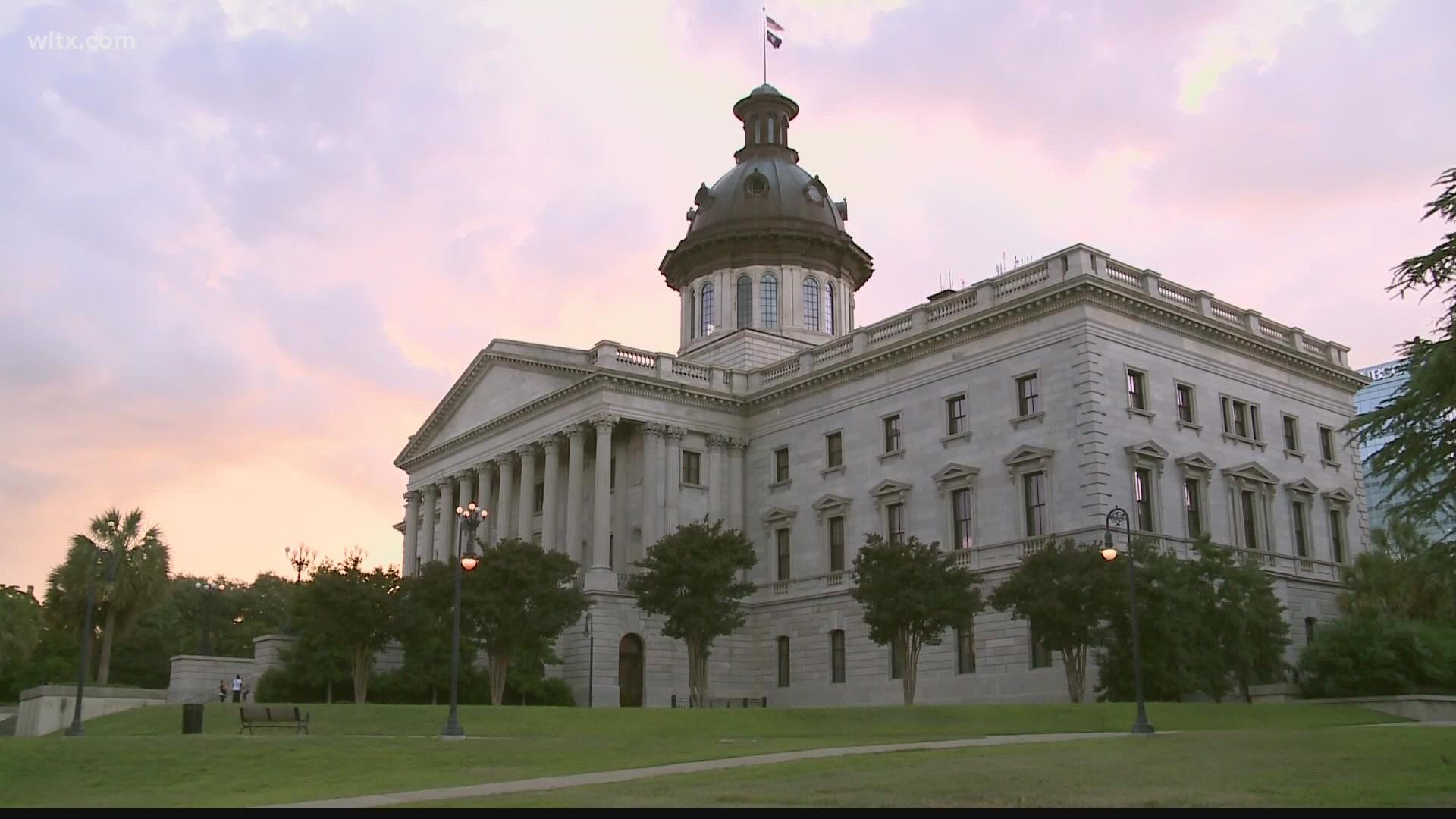COLUMBIA, S.C. — Voters will have the opportunity to change the South Carolina constitution in the upcoming general election.
In short, the two proposed constitutional amendments would increase the state's two rainy funds, which is money set aside for emergencies.
Here's how the two amendments will appear on voters' ballots:
1. A ‘Yes' vote will increase the amount of money state government must keep in the General Reserve Fund (its "rainy day" fund) from 5% of the previous year's revenue to 7% of the previous year's revenue.
2. A ‘Yes’ vote will increase the amount of money state government must appropriate to the Capital Reserve Fund (the “reserve and capital improvements” fund) from 2% of the previous year’s revenue to 3% of the previous year’s revenue and require that the Capital Reserve Fund’s first priority is to offset midyear budget cuts at state agencies.
Sen. Katrina Shealy (R-Lexington), who serves on the Senate Finance Committee explained lawmakers unanimously passed the amendments.
"If lets say midterm, DSS or DJJ used up all their funds, we have that money (in the General Reserve Fund or GRF) to go back on. It's a rainy day fund," said Shealy.
She expressed that the amendments does not raise taxes, but rather takes money the state has already collected and saves more of it.
According to the State Revenue and Fiscal Affairs office, South Carolina has not had a year end deficit or midyear budget cut since the state increased the general reserve fund from three percent to five percent in 2010.
According to state data, The General Reserve Fund (GRF) is sitting at $732,180,508 for fiscal year 2022-2023. According to the South Carolina Department of Administration, the GRF may be used to cover a year-end shortfall in General Fund revenue collections.
The Capital Reserve Fund (CRF) is used to pay back any money spent from the GRF.
"If you have too much money then you could go back and fund projects that didn't get funded before," said Shealy.
Voters like Sarah Gibson said with a recession looming, it's better to be safe than sorry.
"If state employees can keep their job, again proactive rather than reactive is always a good plan especially in times like right now," said Gibson.
Each proposal requires approval from 60 percent of voters to pass.
Between 1985 and 2018 there were a total of 54 statewide ballot measures, according to Ballotpedia.
Of those, 45 of them were approved.

